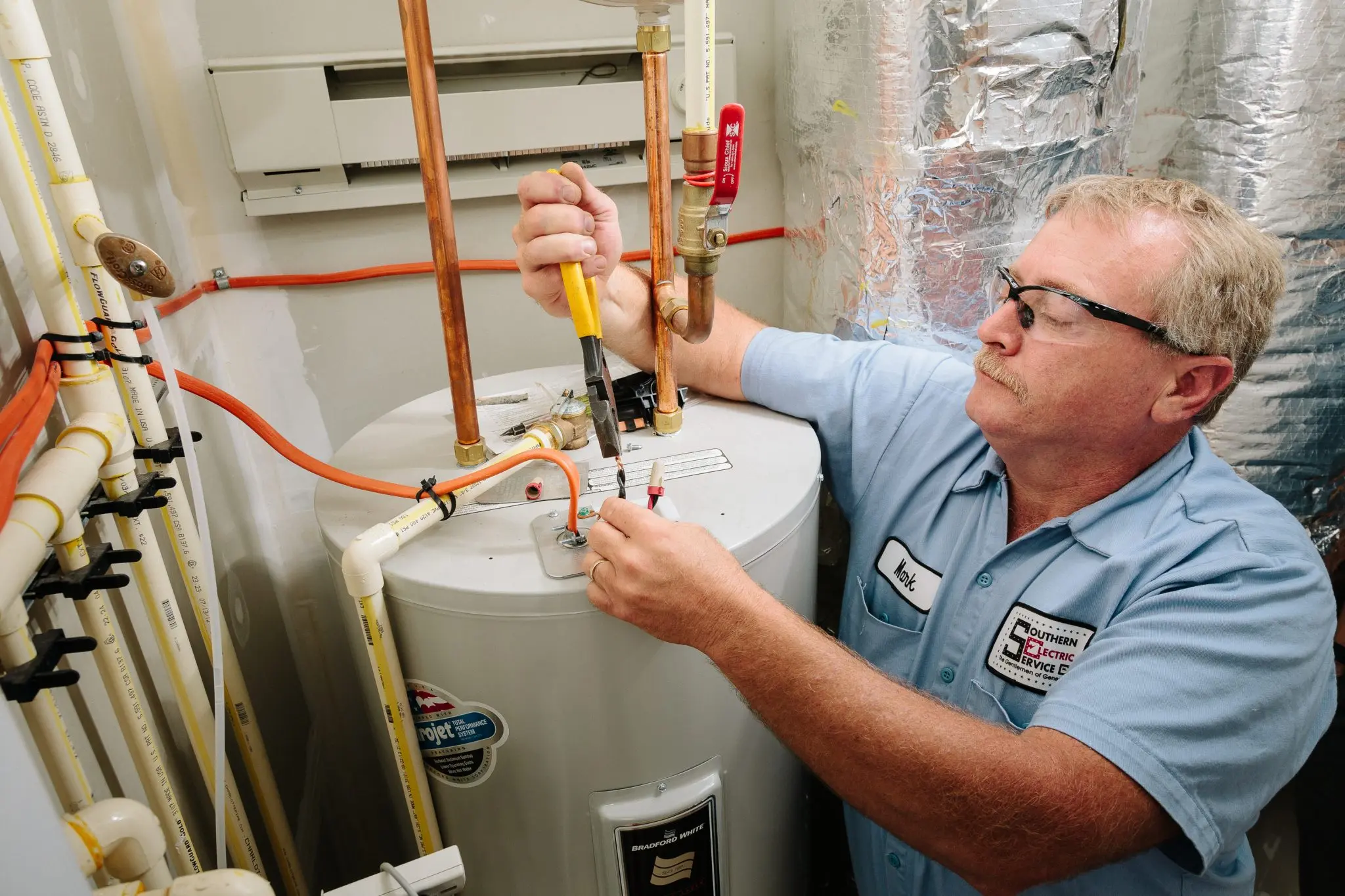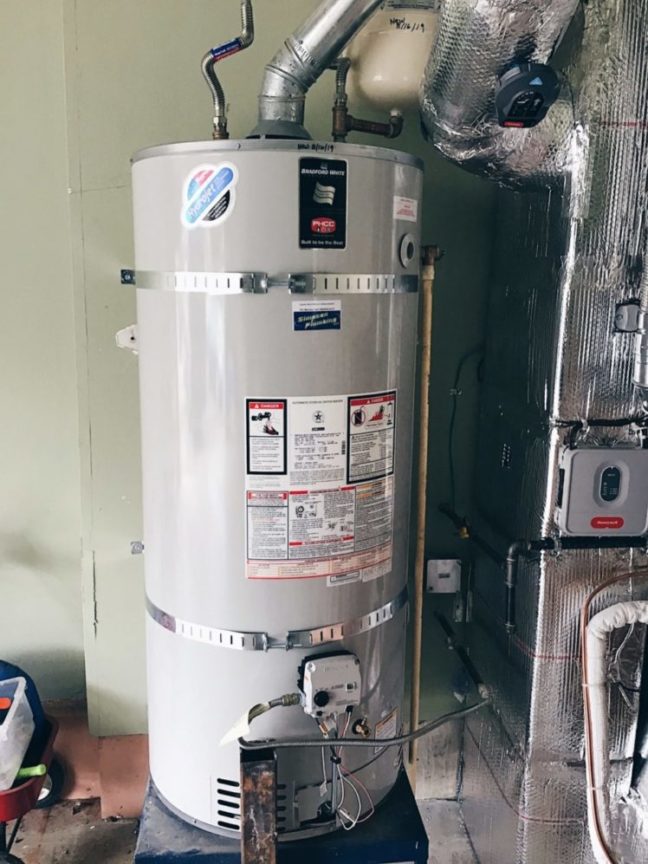Comprehensive Drain Cleaning Services to Maintain Healthy Plumbing
Full Guide to Water Heating SystemInstallation and Replacement
Comprehending the intricacies of water heating system setup and substitute is essential for house owners seeking to ensure performance and integrity in their hot water supply. From picking the proper kind and dimension to executing a seamless installation procedure, numerous factors have to be taken into consideration to avoid common risks. This overview will certainly give you with the essential steps and insights to navigate the complexities of this home enhancement job, while also highlighting critical maintenance practices that can prolong the life of your system. As you explore these facets, you may find yourself reassessing your current setup and determining locations for renovation.
Sorts Of Water Heating Systems
When taking into consideration hot water heater installment and replacement, it is important to comprehend the numerous kinds of water heating units available in the market. One of the most usual types consist of container water heating units, tankless water heaters, heatpump water heating systems, and solar water heating units.
Tank hot water heater are standard systems that keep a particular quantity of hot water, making them readily offered when needed. They are generally more economical in advance but may sustain higher power prices with time because of warmth loss. On the other hand, tankless water heaters give hot water on need, eliminating the requirement for storage space. They are power effective and can conserve space, however their initial expenses are normally higher.
Warmth pump hot water heater make use of electricity to move warmth from the air or ground to heat water, using significant energy cost savings yet needing even more space and particular setup problems. Last but not least, solar water heating systems harness solar power to warm water, supplying an environmentally friendly choice with prospective long-term expense financial savings, although they often need a backup system for cloudy days.
Comprehending these alternatives makes certain educated choices relating to setup and replacement, accommodating details requirements and preferences.
Choosing the Right Dimension
Choosing the suitable size for a hot water heater is crucial to ensure optimum performance and effectiveness. An unit that is as well small will certainly battle to fulfill family demands, bring about irregular warm water schedule and boosted energy intake. Conversely, an extra-large hot water heater can lead to unnecessary power waste and higher energy bills.
To figure out the right dimension, consider the house's top warm water use. This can be calculated based upon the number of passengers and their typical warm water requirements. As an example, a family of 4 might need a hot water heater with a capability of 50 to 80 gallons, depending on the usage patterns, such as simultaneous showers and laundry.
Additionally, examine the recuperation rate, which measures exactly how promptly a heater can renew warm water after it has been used. For tankless designs, concentrate on the circulation rate, measured in gallons per minute (GPM), to ensure it satisfies the household's simultaneous demand.

Installment Process Introduction

Next, the old device has to be detached and removed, making sure to comply with local codes and laws pertaining to disposal. When the old device is out, the new hot water heater can be placed in position. This step includes connecting the water lines, guaranteeing that all installations are leak-free and secure.
After developing water links, it's important to link the power supply, whether electrical or gas, complying with the maker's directions diligently. Once all links are made, the system should be full of water, and the power can be transformed back on. Ultimately, it is necessary to look for leaks and make sure the water heater is working properly prior to completing the setup procedure.
Usual Installation Mistakes

One more frequent blunder is ignoring to comply with regional codes and policies. Stopping working to abide by these requirements can not only bring about safety and security threats however might additionally cause expensive penalties or the demand for pricey reinstallation. Furthermore, inappropriate airing vent is a vital problem. Poor ventilation can create dangerous gas buildup, positioning serious wellness risks.
Stopping working to secure links or utilizing the wrong kind of fittings can lead to leaks and water damages. By preventing these common installment errors, homeowners can guarantee their water heating system operates securely and effectively, optimizing performance and durability.
Upkeep Tips for Long Life
Proper upkeep of a hot water heater is necessary for its durability and ideal performance. Regular examinations and servicing can prevent costly repair work and expand the home appliance's life expectancy. Begin by checking the temperature setup; it must usually be set between 120 ° F and 140 ° F for optimum energy efficiency and safety.
Every six months, purge the container to get rid of sediment build-up, which can impair heating performance and cause rust. To do this, transform off the heating system, link a hose to the drain shutoff, and let the water run up until it is clear.
Anode poles need to be checked every year and replaced when they are rusted. These their explanation rods help prevent storage tank rust by attracting corrosive elements in the water.
Additionally, examine the pressure safety valve frequently to guarantee it is working appropriately. This try these out valve is vital for stopping excessive pressure accumulation within the tank.
Last but not least, think about arranging a professional maintenance check every few years for detailed assessments and servicing. By sticking to these maintenance tips, homeowners can substantially enhance the effectiveness, safety and security, and life expectancy of their water heating systems, guaranteeing reliable hot water for years to come.
Final Thought
In conclusion, appropriate installment and upkeep of water heating systems are vital for making certain effectiveness and longevity. By understanding these crucial aspects, homeowners can accomplish a reliable hot water supply while lessening prospective issues connected to water heating system procedure.
Recognizing the complexities of water heating unit installment and replacement is vital for home owners looking for to ensure performance and integrity in their warm water supply.Container water heating systems are traditional systems that save a details quantity check my reference of hot water, making them readily offered when needed. In contrast, tankless water heaters supply warm water on demand, getting rid of the requirement for storage space. Picking a water heater that is either also small or also big can lead to ineffectiveness, resulting in inadequate warm water supply or excessive power consumption.
By recognizing these important facets, home owners can accomplish a trusted hot water supply while lessening prospective issues associated to water heater operation. gas leak repair.